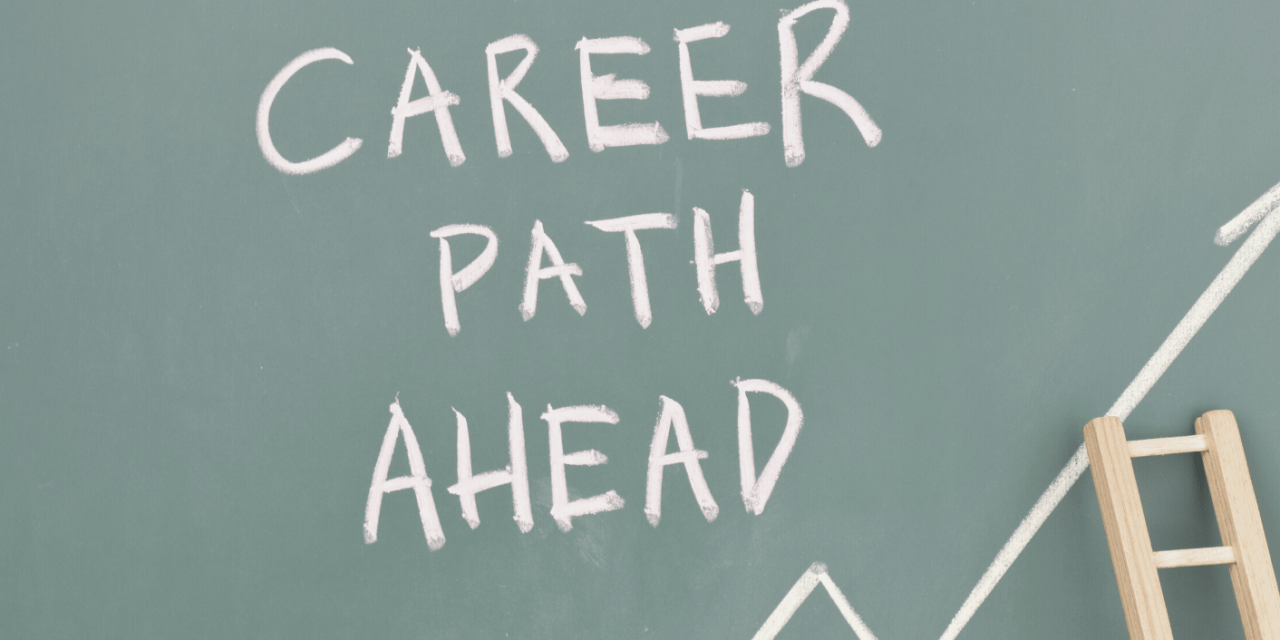SHOULD RESEARCHERS IN RPPs ONLY RESEARCH? EXPLORING ROLES FOR RESEARCH-SIDE PARTNERS THAT GO BEYOND RESEARCH

Introduction
A primary goal of research-practice partnerships (RPPs) is to “[support] the partner practice organization in achieving its goals,” as contended by Erin Henrick et al. in Dimension 3 of the Henrick, et al. RPP Effectiveness Framework (p. 11). In support of this aim, the authors also suggest three indicators RPPs might use to measure progress towards this dimension:
- The RPP provides research and evidence to support improvements in the partner organization;
- The RPP helps the practice organization identify productive strategies for addressing problems of practice; and
- The RPP informs the practice organization’s implementation and ongoing adjustments of improvement strategies.
Upon closer reflection, these indicators all revolve around what we would label research-centric supports, that is, activities that are tied closely to knowledge-generation and dissemination. Indeed, we have certainly seen several cases where RPP partners on the research-side often support practice-side organizations by providing:
- Research-based information and references
- Research-informed learning opportunities and products
- Research strategies/capacities that practitioners can apply to their own work (e.g., articulating research questions from problems of practice, plan-do-study-act cycles)
And yet, we have also experienced several instances in our own partnership efforts where we needed to engage in non-research related activities in order to support our practice-side partners in achieving their aims. This led us to ask: What else can researchers offer practitioners in these RPP relationships? Do RPP researchers only do research? Or is there a collection of partnership activities that R-side partners should consider part of their charge as well?
In this Deep Dive, we take a closer look at these questions by reflecting upon our own practice, as well as summarizing what we learned during a workshop we hosted at the recent NNERPP Annual Forum in July, where we asked participants to thought partner with us on research-side activities they engage in to support their practice-side partners. Although there is clearly a role for research-side partners to play with respect to research-related activities, we think there is great potential (and perhaps need) for research-side partners to also consider supporting activities that might go beyond these boundaries.
Our Experience
In our recent CSforAll RPP working with two rural Eastern Kentucky school districts, “Tough as Nails, Nimble Fingers: Developing a K-8 Coding Pathway for Kentucky Appalachia”, despite our best efforts to make a teacher survey relevant to classroom implementation – harkening back to one of the indicators identified by the Henrick, et al. RPP Effectiveness Framework –, our practitioner partner remarked that the information we gathered was not particularly useful to them because they already knew about the general baseline trends that the research side aimed to systematically capture. Although this example may be an isolated incident, it illustrates the nature of the questions we raised above: what else might research-side partners do that goes beyond research-centric activities in our best effort to support practice-side partners?
While we have not confirmed this with our partners, we suspect that some of the incidental and “non-research type” supports we provided in other partnership examples – like suggesting ways to organize their district lesson capture tool, and providing comments on their recent grant proposal – were greatly appreciated, even though these were less central to our goals as researchers. And so, while the priorities of practice-side organizations can align exactly with those of research-side partners, sometimes this isn’t the case.
These examples also touch on a related point: On the one hand, it remains important to think carefully about partnership artifacts that are not conceived in a vacuum but are developed collectively among the key players of the RPP to ensure mutual relevance. While not explicitly called out in the indicators identified by Henrick and colleagues, there is an inherent sense that the activities taken up by research-side partners in support of their practice-side partners will be of benefit to both sides.
On the other hand, the examples also point to the difficult but important work of arriving at (and maintaining) mutual problems of practice. And for this, returning to a project’s original research questions may not be enough, hence the deviation towards non-research-centric activities that will be especially helpful to the practice-side. We note the recently published NNERPP RPP Brokers Handbook that describes a wide range of brokering practices, which are often “invisible” but help to sustain meaningful RPPs. The Handbook contains a number of examples illustrating the types of activities that are not squarely in the “research” space but are perhaps necessary for partnership work to move forward.
Given these reflections, we decided to next test some of our thinking with participants at the NNERPP 2021 Annual Forum in July.
What Does the NNERPP Community Think?
For our Annual Forum session, “Can RPP researchers serve roles beyond research? Should they?”, we sought to thought partner with the NNERPP community in an effort to expand our understanding of the questions raised earlier. We thought this topic an important one for the RPP community, partly to help examine and calibrate power dynamics within our RPPs, and partly to help increase the potential for impactful RPP work.
About 20 NNERPP members attended the workshop, sharing various ways in which they supported practitioner goals and naming the roles beyond what might be typically expected of researchers (Exhibit 1). The types of supports identified by workshop attendees overlapped closely with the examples we shared about our RPP, including providing technical assistance with data collection/curation, supporting instructional or resource procurement needs, supporting practitioners’ communication needs, and brokering productive relationships for the practitioner organization.
Exhibit 1. Examples of how research-side partners in NNERPP have supported practitioner goals beyond research (verbatim responses from jam board, organized under categories created by Iwatani and Burke)
| Types of Non-Research Activities to Support Our Practice-Side Partners | Examples from the NNERPP Community, Gathered During the 2021 NNERPP Annual Forum |
| Provide technical assistance in data collection/curation that are not necessarily related to the main project goal | Data policy, practice, and governance coaching and support. E.g. creating codebooks or configuring warehousesSupported with technical assistance in calculating school/district level goalsCompiled a list of community-based organizations that work with various populations of families and youthsKeeping [practitioners] updated on research outside of what [we are] doing together |
| Provide strategic thought-partnership | Being a thought partner to support needs sensing |
| Support instructional needs | Provide support through k-12 intervention student needs with pre-service teachers |
| Support communications needs | Communicating to the broader community… parents, etc…Data support, helping tell the story to policy makers about why more needs to be invested in data infrastructure |
| Support needs for resource procurement | Seeking funding opportunities to support initiatives |
| Broker relationships and align other players in the field to support district initiatives | Brokering between multiple state agencies working on the same policyAiming to create a coherent pipeline from the teacher prep program to schools/districtPresenting research to the legislature |
In terms of whether researchers should provide such supports, the group comments were split between “yes,” “no,” and “it depends” (Exhibit 2). Several who said “yes” suggested that playing roles beyond research helps to ensure the success and sustainability of the RPP goals. For example, if an RPP is funded to design a CS/CT pathway, but the researchers rely solely on the practitioners to get community buy-in and procure the materials, the chances of the project’s success and sustainability may be jeopardized. Thus, it may be better to support practitioners in these areas, skills and resources permitting.
Another reason for RPP researchers to support practitioners beyond research was based on a principle of decency – if our practitioner partners have needs that researchers can easily fill, why not? Isn’t that some of the unstated (if not invisible) benefits of such a partnership? As one workshop participant pointed out, many researchers have deep expertise in data infrastructure, and can easily be consulted about this. Likewise, many researchers have experience with proposal writing/review, communications, and strategic networking, which practitioner partners might need and appreciate if these can be easily shared.
Many of those who said “it depends” and “no” were concerned about potential negative consequences to the practitioners and researchers, and about what the bounds might be for providing such “beyond research” support. What if the researchers don’t have the interest or expertise to support the districts in any special way? What if this well-intentioned support turns out to be a burden for the practitioners? And what are justifications and boundaries for providing such support? Shouldn’t the RPP provide resources to support this by design, rather than rely on researcher volunteerism?
Exhibit 2. NNERPP workshop participants’ responses to: “Should RPP Researchers support practitioner organizations beyond research? Why/why not?” (Verbatim responses under categories that existed on the jam board)
| YES | IT DEPENDS | NO |
| Yes!YesBecause knowledge utilization is important and can be fostered by researchersYes! Capacity in practitioner organizations is often limited. Supports offered by research partners are often necessary to translate research findings into meaningful impactsData infrastructure could be informed by researchersAfter the $ ends, initiatives often quickly die/ disappear; this is OFTEN characteristic of steep research & practitioner divides | Depending on the priority to be addressedYes, if qualifiedTIME. It depends on the task: Is it simple or will it require a lot of extra work?They should whenever they can but should be based on their skillset based on their strength/training as researchers. (I’m constantly thinking about how to repurpose their skills) | Does this just mean MORE work for teachers/ admin? Have you ably budgeted for an RPP?Or maybe instead of “NO”, under what conditions should we discourage this?If staff are uninterested or don’t have the expertiseI think there is an issue/question to consider in terms of systematizing. Would “beyond research” be something that can be systematized or would it be ad hoc and one-off? |
In Closing
In reflecting on workshop attendees’ responses, we appreciated the concerns about negative impact to practitioners, and agree this needs careful consideration. With regards to concerns about the boundaries of the researcher role, we encourage interested research-side partners to continue to explore their own limits, because this is an interesting frontier of RPP methodology. On that front, one exercise that we recommend is to have continual open discussions about RPP members’ individual goals and hopes, in addition to discussing the group’s goals and hopes. We recently did this when creating our project dissemination plan for this academic year. In addition to discussing what we thought might be good products per our shared project goals and funding source, we made space for researchers and practitioners to share what types of dissemination efforts they most wanted to see happen, given their personal interests and professional role. From this question, we found out that one of our practitioner partners wants to create a white paper for policy makers, and another wants teacher success stories to be disseminated across the school community. Neither of these are an exact fit with the general research plan as initially conceived, but they are important to our partners, important to project sustainability, and therefore important to us. We have shifted how we conceptualize time and resource allocation to fit these in, and look forward to supporting these efforts, taking on “beyond research” support roles such as editing and co-writing.
Whether, how, when, and under what conditions research-side partners should serve in roles beyond research is very much an open question, and the answer to this question might look different for each individual partnership and project. We hope this article serves as a starter for the RPP community to think further about this, and look forward to the ensuing exchanges and new discoveries.
Emi Iwatani is a Senior Learning Sciences Researcher and Quinn Burke is Director of Computational Thinking Research at Digital Promise.
Suggested citation: Iwatani, E., & Burke, Q. (2021). Should Researchers in RPPs Only Research? Exploring Roles for Research-Side Partners That Go Beyond Research. NNERPP Extra, 3(3), 9-13. https://doi.org/10.25613/WXCX-2G13








